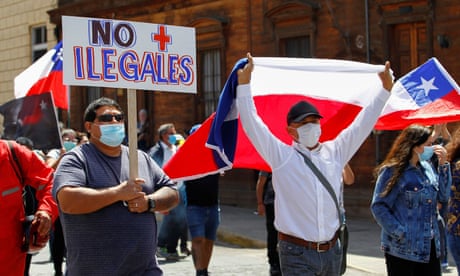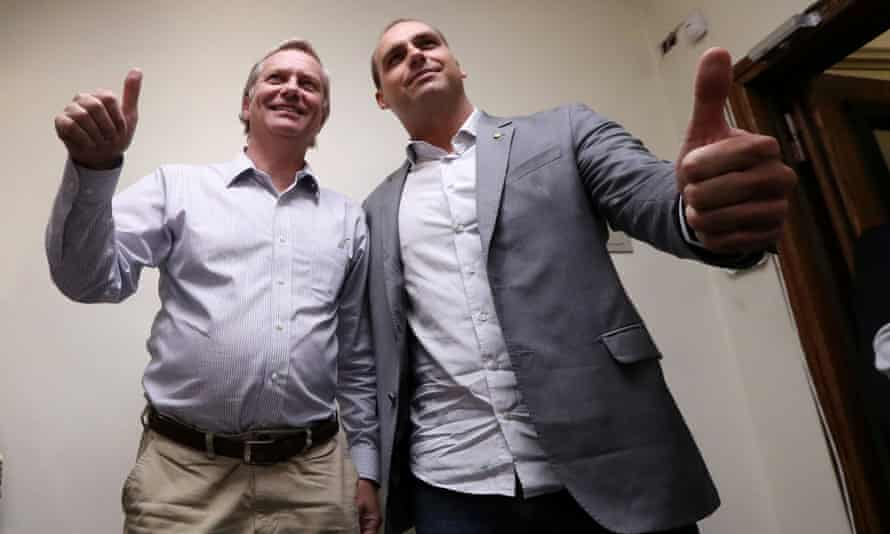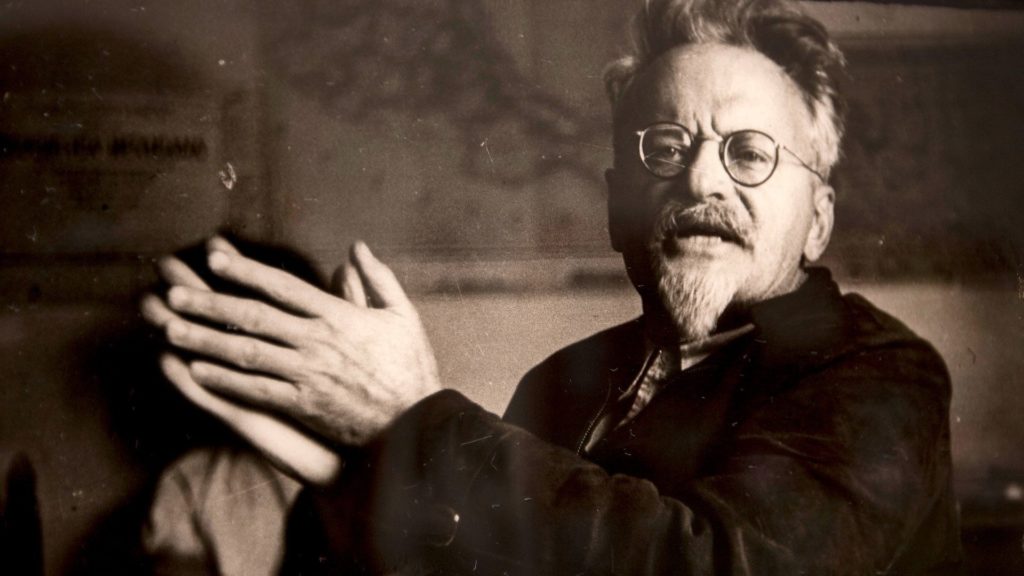Where Is China Going? A Review of Two Opposing Views
The United States is escalating its provocations against China. To understand the rivalry between the two countries, we have to understand their class nature. In the case of China, the debate over its social and economic form is far from settled. This article discusses two recent books that take quite different positions on this question.
Esteban MercatanteDecember 15, 2021

On December 9 and 10, the United States organized an international “Summit for Democracy.” Excluded from this were countries, including China, that are not aligned with the United States, which remains the world’s main imperialist power. Continuing a line of provocations initiated by Donald Trump, President Joe Biden did invite Taiwan, an island nation that maintains its independence but that China considers part of its territory. In recent days, the U.S. also announced a diplomatic boycott of the 2022 Winter Olympics, to be held in Beijing, citing concerns about Chinese violations of human rights. These are the latest signs that the long-running U.S.-China dispute shows no sign of abating.
To understand this intensifying rivalry and where it might be headed requires a clear definition of what type of conflict this is, and that in turn requires that we clarify the class nature of the adversaries. In China’s case, that characterization is far from settled. There are a host of quite dissimilar positions out there, including those of two recent books, which I discuss here.
Deng Xiaoping: A Return to Marx?
Some claim that China has not departed from a socialist path, but has actually taken that path even further. This includes John Ross in his recently published China’s Great Road.1 As Ross sees it, the “reform and opening up” initiated by Deng Xiaoping in 1978, far from moving China away from socialism, would have meant a true return to Marx’s notions about the transition, first from capitalism to socialism, and then finally to communism. Deng privatized many enterprises, leaving only large firms within the state sector. This, “together with the creation of a new private sector[,] created an economic structure clearly more in line with that envisaged by Marx than the essentially 100 percent state ownership in the USSR after 1929.”
Ross argues that “reform and opening up” reflected a critique of Soviet economic policy as it had existed since the introduction of the first Five-Year Plan (1929) and, by “implication,” subsequent “Soviet economic policy [that] made the error of confusing the ‘advanced’ stage of socialism/communism, in which the regulation of the economy is ‘for need,’ with the socialist, or more precisely ‘primary’ developing stage of socialism, during which the transition from capitalism to an advanced socialist economy takes place.” In this way, the “final formulation arrived at was that China’s was a ‘socialist market economy with Chinese characteristics,” one that would be the most appropriate for the current stage at the time, and the reforms, far from a regression or the beginning of a capitalist restoration, would be the abandonment of a voluntarist and mistaken route to carry out an unfeasible rapid transition to socialism — as understood, Ross claims, by the leadership of the Chinese Communist Party (CCP). “This transition,” he writes, “should be conceived as extending over a prolonged period.”
In this analysis, Ross follows Giovanni Arrighi in examining Chinese society using Adam Smith’s conceptual scheme, but he goes a step further by constructing a much more Smithian Marx than a careful reading of Capital would suggest. The author completes his rather eclectic theoretical scheme by resuscitating John Maynard Keynes’s statement, at the end of The General Theory of Employment, Interest and Money, that socializing investments is the only way for advanced capitalism to sustain growth. According to Ross, China is following Keynes’s prescription, which the capitalist states cannot do, and this has been the key to the success of “reform and opening up.”
This is a rather peculiar understanding and defense of a “socialist market economy with Chinese characteristics.” Ross wants to reaffirm the “return to Marx” in Deng’s policies, but he can do so only through the prism of this Smithian and Keynesian Marx, according to which the key is the division of labor, trade, and the encouragement of investment, while the generalized “expropriation of the expropriators” should not be undertaken until a very advanced stage of socialism in the distant future.
Again and again in the articles compiled in his book, Ross supports his thesis by pointing out that no capitalist country has shown a similar trajectory of sustained economic growth or has lifted millions of people out of poverty. This is proved, he writes, whether we compare what has happened in recent decades in the richest countries — which, according to the author, are situated in a “new mediocre” of weak economic growth and limited productivity growth — or whether we look at what happened in the entire history of capitalism, in which no country has generated an impact equivalent to that of China, which involved 22 percent of the world’s population in its “miracle.” Ross wants to dismantle the ideology that this performance is explained by the CCP’s decision to embrace capitalism. If the capitalist mode of production did not reduce poverty or bring development to any poor country in recent decades, how can the results achieved in China be attributed to a capitalist turn?
Obviously, for those who want to use China’s evolution to advocate for capitalism, there’s one thing for which they cannot account: no “Chinese miracle” could have taken place without the 1949 Revolution, which achieved national unity, led to a break with imperialism (until relations were restored under Mao’s initiation in the early 1970s), liquidated large land ownership, and aimed at strengthening a nationalized industry. Neither the nationalist Kuomintang nor any other sector of the bourgeoisie had been able to carry out what was achieved by the revolution.2
Ross’s approach, however, in his effort to attack the bourgeois ideology that uses China to assert that there is “no alternative” to capitalism, exposes several weaknesses.
First, as economist Michael Roberts points out, Ross goes close to echoing the views of that anti-socialist socialist, the recently deceased Hungarian economist Janos Kornai, widely acclaimed in mainstream economic circles. Kornai argued that China’s economic success was only possible because it abandoned central planning and state dominance and moved to capitalism.
Ross gives coherence to the policies implemented from Deng to Xi Jinping, under this umbrella of a socialism inspired by the return to Marx that is simply not consistent with the facts. To begin with, the “reform and opening up” was marked by many instances of trial and error, with a forceful dispute between sectors of the CCP bureaucracy, as reported by Yue Jianyong in China’s Rise in the Age of Globalization and Isabelle Weber in the recent How China Escaped Shock Therapy.3 Both books give an account of the multiple twists and turns that the leaders of the People’s Republic were forced to take with the policies of privatization and the introduction of capitalist reforms, impeded by the resistance of wage-earning sectors in the cities and the countryside and divisions within the ruling group itself (more over the pace of the reforms than their direction).
Perhaps most important is that Ross — in his effort to show the progressive path of the “great road” China has traveled, always in his view toward socialism — denies all the deeply regressive aspects of the transformations begun in 1978. He makes no mention of the massive destruction of jobs in the state-owned enterprises that were privatized — and also in those that remained in state hands and were “modernized” — or of the creation of a “second-rate” labor force that became the majority, composed of rural migrant sectors lacking hukou (residence permits) in the cities, which thus deprives them of access to many rights. The massive environmental footprint that went hand in hand with China’s transformation into the world’s factory, which keeps growing thanks to the frenetic pace of construction of infrastructure and entire cities (many of them almost empty, and with remarkably short-lived real estate developments), is also characterized by Ross as part of the baseless ideological attacks launched against China.
For Ross, China is a beacon for the rest of the world, an alternative to neoliberal capitalism. He says nothing about China’s central role in enabling the large-scale “global arbitrage of labor” that has allowed the bosses around the world to mount a massive attack on the workforce. As I wrote in “The Contours of Capitalism in China,”
This arbitrage markedly changed “how the pie was sliced” among the classes, as the country’s income was increasingly generated by private capital investment. This occurred in the imperialist countries as well as in the countries that attracted investment, while other dependent economies were left behind. China, with its current population of nearly 1.4 billion and a workforce of 940 million people, was a centerpiece of the so-called “doubling” of the world labor force available to transnational capital.
This central role played by China in the global socio-metabolism of transnationalized capitalism during the globalization of production in the last decades shows that the Chinese “miracle” Ross describes as “socialist” and the social regression imposed by capital on the rest of the planet are two sides of the same coin.
The Communist Road to Capitalism
The book The Communist Road to Capitalism by Ralf Ruckus offers a look at China’s trajectory from the revolution of 1949 to the present.4 The author maintains, and I agree, that a transition to capitalism began with Deng’s reforms, and that this transition crystallized into a new social formation, in which what one could call “capitalism with Chinese characteristics” predominated.
An interesting aspect of Ruckus’s method of analyzing China’s transformations is his emphasis on transitions. He points out that since the revolution there have been two transitions that went in opposite directions: the first, toward socialism, began in 1949; the second, from the mid-1970s onward, toward capitalism. The author also emphasizes the role of the actions of the masses throughout the history of the People’s Republic of China (PRC).
His framework is correct, but I think he is wrong that the formation that would have emerged from the first transition in the late 1950s or early 1960s could be characterized as socialist. This has to do with the author’s indiscriminate criticisms of what he identifies as Marxism-Leninism (which, along with Social Democracy, he considers two “grand narratives” that the Left should break with) in favor of an autonomist strategy. Ruckus correctly characterizes several of the contradictions produced by the consolidation of the CCP: rather than putting an end to social stratification, it created new hierarchies, with the party and state bureaucracy in the privileged position; despite promises to end the oppression of women, it created new forms of oppression; and after giving land to the peasants, it relied on the appropriation of high levels of peasant surpluses to sustain industrial growth.
But as Ruckus shows, these features quickly fueled social discontent and gave rise to profound upheavals. The latter explain all the disputes and twists and turns of the CCP’s various factions, but they did not lead to socialism or anything resembling it. Instead there arose a workers’ state that was bureaucratized from its inception and that became only more so. This is the result of the social forces that acted in the revolution. As Emilio Albamonte and Matías Maiello point out.
It was not the working class with its own revolutionary party that carried out the bourgeois-democratic tasks and linked them with its own program; rather, a peasant-based communist party ended up adopting part of the proletariat’s program. … [As a consequence] there was no dynamic of permanent revolution (internationally and nationally) toward communism after the seizure of power; rather, this prospect was blocked from the beginning.5
By its social bases China was a workers’ state, with nationalized ownership of the means of production, a (bureaucratic) planned economy, and a state monopoly of foreign trade. But from the beginning the party-army imposed a bureaucratic apparatus, without any sort of soviet democracy, that took over the state. This became a barrier to any advance toward socialism.
Within the framework of these important objections, Ruckus does well in identifying some of the turning points over the course of capitalist restoration. “Mass protests marked the historical turning point once more, this time including demands for political changes and more democratic participation,” he observes6 The so-called April 5 Movement, which took place in 1976 after the death of Premier Zhou Enlai, and the Democracy Wall Movement two years later, again gave rise to a “repeated pattern of unrest followed by a varied mix of repression, concession, co-optation and eventually reform.”7 The response to April 5 was particularly brutal, but after Mao’s death in 1976, the political situation turned around.
The conservative faction in the CCP leadership staged a successful coup and disempowered the leftist rivals grouped around the so-called Gang of Four. A group around Deng Xiaoping, who had been rehabilitated, took over. It co-opted demands for democratic change and, in 1978, officially announced the Economic Reform and Opening policies.8
The beginning of the economic reforms went hand in hand with refusing to make any significant concessions in terms of democratic participation. From then on, rural land was handed over for private use (without transferring ownership), for the development of private industrial enterprises in rural areas, and to create the first Special Economic Zones (SEZ) to which multinational capital was invited — and for which rural migration provided the needed workforce. Labor contracts were introduced, and labor markets began to develop in the mid-1980s. As Ruckus writes, “The gradual transformation of the planned economy and urban industries led to economic turbulence, cadre corruption, and social unrest.”9
The 1980s saw a growing number of strikes and other forms of protest by workers and students; this culminated in the Tiananmen Square Movement in 1989, which was bloodily suppressed by the People’s Liberation Army. There then followed an upheaval, at a time when the Soviet Union and the Stalinist regimes of Eastern Europe were collapsing. This led to an impasse for a few years in the progress of restorationist measures. Deng was by then formally out of office, but he toured the entire south of the country to defend the policy of reform and opening up. Under his pressure, there was an accelerated restorationist advance beginning in 1992. “The influx of foreign investment in manufacturing increased,” Ruckus notes, “and mass migration from villages to cities and SEZs turned the PRC into the ‘factory of the world.’”10 In this framework, the CCP “accelerated the transformation of the socialist planned economy and restructured or privatized state-run enterprises, now called state-owned enterprises (SOEs) — a process that turned out to mark the final transition to capitalism.”11
Ruckus’s book ends by pointing out the signs of turmoil that threaten Xi’s ambitions to go on forever and that explain the increasingly Bonapartist features of his rule, as discussed in an earlier article.
Capitalism, Imperialism, and World Disorder
As has been shown, the dispute between the United States and China cannot only be analyzed as one between two incompatible social regimes, as was the case in the Cold War. It is just as illusory to think that because China is confronting the main imperialist power, it offers some prospect of a more benevolent, nonimperialist hegemony for the oppressed countries. On the contrary, China does not aim to challenge the imperialist system.
In the many countries of Africa where China has gained an advantage over the United States and the European powers, it has more than once exhibited behavior that is hardly different from that of traditional colonialism in terms of its rapaciousness and disregard for environmental impacts. The development of the Silk Belt and Road Initiative, with which Beijing aims to gain privileged access to natural resources all over the planet, has led to conflicts in several countries thanks to the debt burden the Asian giant imposes on its partners to carry out the ambitious infrastructure projects that comprise the initiative. And within institutions such as the International Monetary Fund, where China has gained some influence (although still much less than that of the United States), it has done nothing to reorient their direction, as evidenced by the answers China gave to Argentinean officials who had hoped for its support and financing to avoid recent IMF adjustment demands.
China aims to challenge the conditions on which the imperialist hierarchy is organized and fight for a predominant position. That is what the clash with the United States is about. This threat — seen as the main threat to continued U.S. domination as the main imperialist power — is what led Trump and now Biden to make the dispute with China today’s central policy axis.
There is nothing for the world’s oppressed people in betting on a more benevolent hegemon. Their fight must be one of concentrating forces and forging alliances to end imperialist oppression, which requires fighting to put an end to capitalism.
First published in Spanish on December 12 in Ideas de Izquierda.
Translation by Scott Cooper












